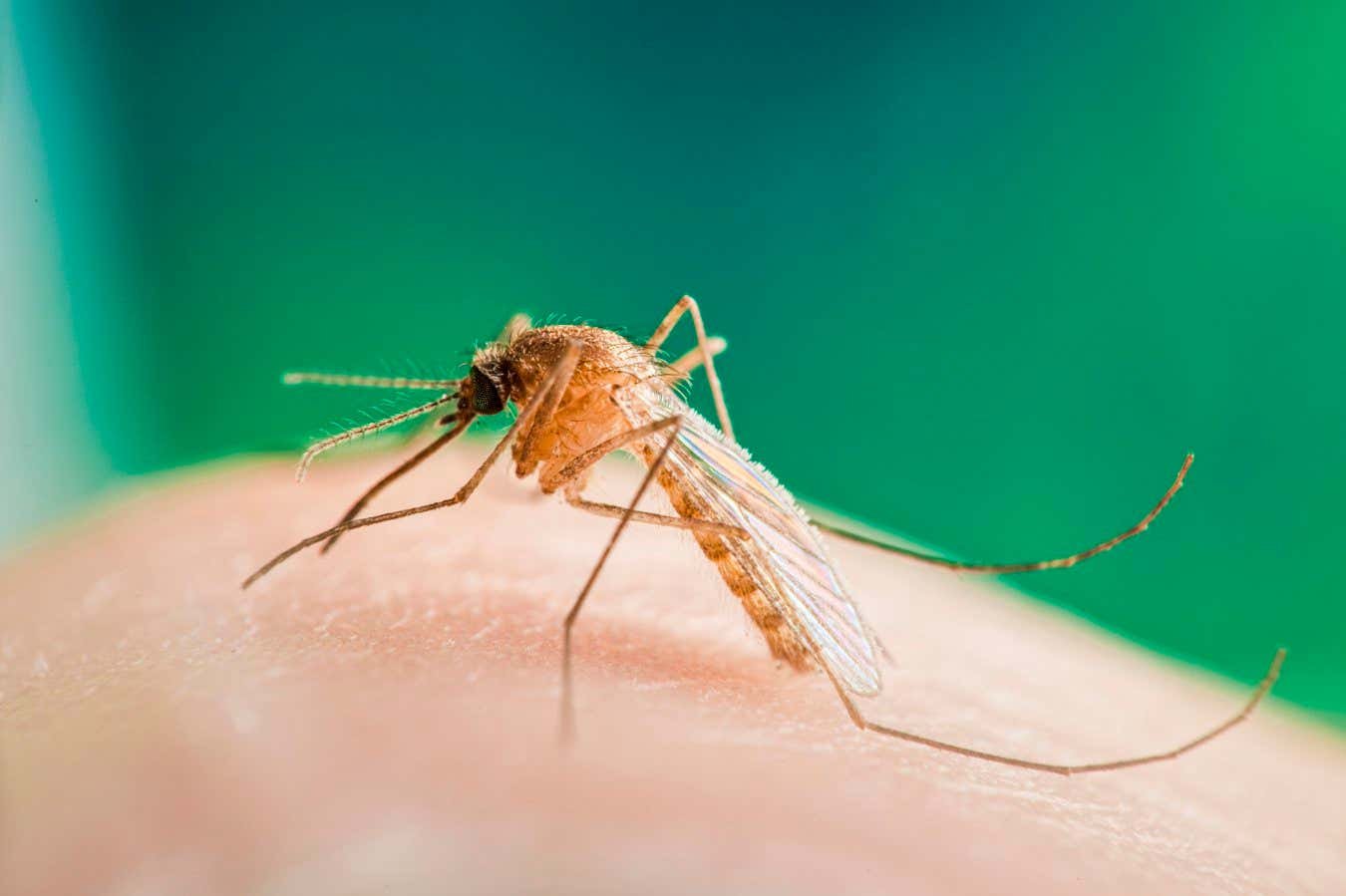Fragments of they are found in Aedes Vexans Mosquito in Nottinghamshire, UK
IMV/istocphoto/Getty Images
West Nile virus, a mosquito-borne infection that may be fatal to humans, has been detected in the UK for the first time.
The British Health Security Agency (UKHSA) said today that a research project it is running with Animal and Plant Health Agency (APHA) Identified “fragments” of the virus from Aedes Vexans Mosquito collection from wetlands on the river Idle in Nottinghamshire in July 2023, which tells researchers that the insects carried the pathogen.
Arran Folly at APHA says the virus was detected because of “Pot good luck” when the tests were tested by his team. Further screening will be deployed around idle this year, he says, to try to catch further cases. Nottinghamshire typically does not include in APHA’s screening program, which is concentrated in southern and eastern England, where infections like Nile are considered more likely to emerge, partly because of the warmer weather typical of these.
People and horses can be infected by West Nile virus from a mosquito cock. In humans, about 20 percent of the infected will experience symptoms that include fever, headaches, body pain, vomiting and diarrhea. In rare cabins, the virus can cause severe inflammation of the brain and spinal cord, which can be fatal. There is no approved human vaccine.
Ukhsa said the virus has only been cleaned in two mosquito samples and that there is no evidence that humans or horses have yet been infected in the UK. The organization said the risk to the public is very low, but added that it is the resulting advice for health workers to test people with brain inflammation – or Encectitis – for unknown reasons.
“Although this is the first detection of West Nile virus in mosquitoes in the UK so far, it is not the axis as the virus is already widespread in Europe,” Meera Chand said in UKHSA in a statement.
West Nile virus is already widespread throughout Africa, Europe and North America. In Europe, the virus has expanded north in recent years, as the climate has warmed and reached the Netherlands in 2020.
The spread of West Nile virus is linked to high temperatures in the spring and summer, drought in the summer and hot winters, all of which become more common in Northern Europe. Although APHA has been discovered any West Nile virus in mosquitoes or birds in 2024, it could reappear this year due to the recent spell with hot weather in the UK. “We have had a very hot May,” says Folly. “If we were to get boxes or any detections, it would be in the next few weeks. This is the first detection. There is probably in the future.”
Researchers in the UK have been very aware of the arrival of the West Nile Virus Sale 2020, as a similar mosquito-cuddle-virus-wherion was first in London. West Nile virus spreads in the same way as usutu and requires the simple environmental conditions.
“I’m not surprised at least,” says Matthew Baylis at the University of Liverpool, UK. “I’ve really waited years of the year and expect West Nile to be done in the UK.”
He says it is likely that the virus was buster to the UK of a brird and probably circulates among more than a mosquito in the country. But he emphasizes that there is no reason for public alarm. “There will be a small risk to some people; some horses get West Nile Dissase, but it will be rare,” he says to the limited number of boxes of the infection in other Northern European nations.
Topics:
